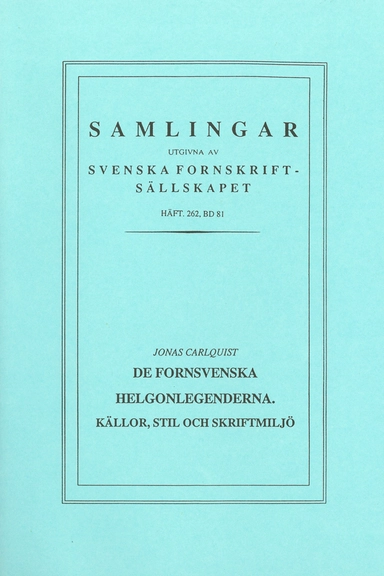This dissertation describes the Old Swedish Saints' lives from a philological and stylistic view-point, relating vernacular hagiographic texts to social institutions. A complete survey of manuscripts containing Old Swedish Saints' lives and miracles is made. A stratified selection of the manuscripts is then subjected to both qualitative and quantitative analyses of style, in which both diachronic and synchronic aspects are taken into consideration. The study demonstrates that there are considerable differences between Saints' lives written for a lay audience and Saints' lives written for a monastic audience. The latter favour bound transmission from their foreign sources and a monastic ideological information structure, using complex syntax and displaying an elaborate punctuation. This is due to their function as a basis for meditative reflection. Saints' lives for a lay audience, by contrast, are adapted so that narrative information and simple syntax are favoured. These texts are more entertaining - although with a moral point. The highly literate Vadstena Abbey played a crucial role in the development of the monastic hagiographic style in the vernacular. The brethren employed a uniform, religious prose style, ranging from information structure to punctuation, for the hagiographic material as well as for other edifying texts. This style developed into a written Bridgettine Old Swedish standard. Keywords: Philology, stylistics, literacy, Old Swedish Saints' lives, transmission, transcription, information structure, syntax, punctuation, Vadstena Abbey Språk i boken: svenska
Åtkomstkoder och digitalt tilläggsmaterial garanteras inte med begagnade böcker





















